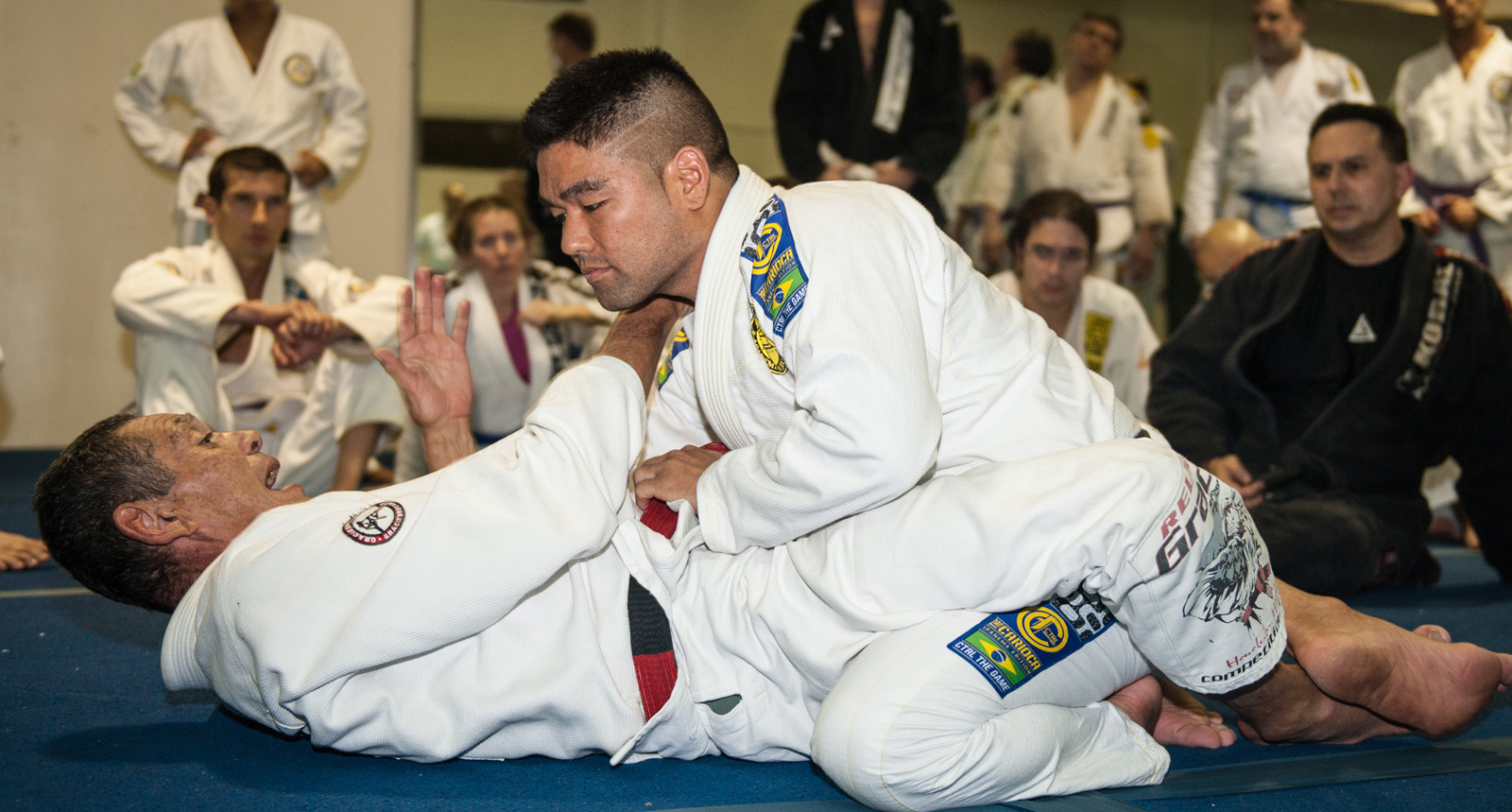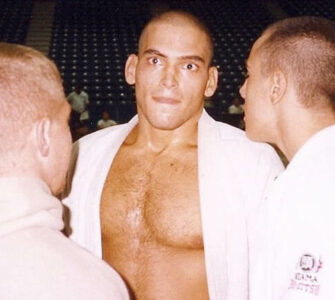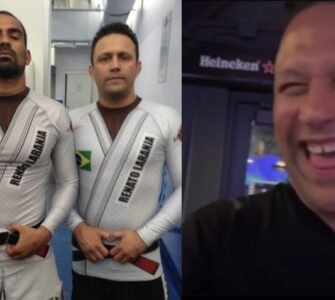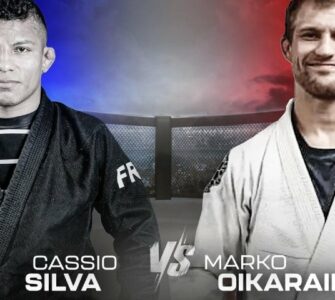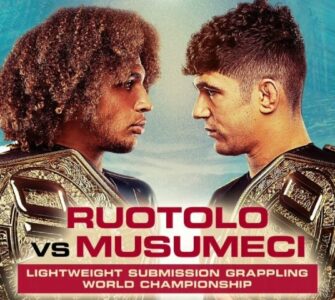A few years ago, Carlos Gracie Jr. claimed the following regarding the self defense vs Sport Jiu-Jitsu debate:
“In self defense, you learn how to mount a layman, he does not know how to defend the mount, but a knowledgeable fighter, a colored jiu jitsu belt, he will know the defense. He won’t let you, so you need to perfect your technique, to mount him. This is a perfected form of self defense. So for me all jiujitsu is just one, there is no divide.”
Steve Abood, a BJJ black belt under Relson Gracie (Carlos Gracie’s first cousin) voiced his opinion on the matter and respectfully disagreed. Relson Gracie teaches a style of Jiu-Jitsu that follows the Helio Gracie system and with a strong focus on more modern self defense over sport specific techniques.
Mr Abood’s opinion is that a skilled vs skilled match up by between BJJ players will be less realistic than a skilled vs unskilled scenario. The main reason is that a skilled opponent will have different reactions than a regular street aggressor.
This is similar to the quote from Mark Twain:
“The best swordsman in the world doesn’t need to fear the second best swordsman in the world; no, the person for him to be afraid of is some ignorant antagonist who has never had a sword in his hand before; he doesn’t do the thing he ought to do, and so the expert isn’t prepared for him.”
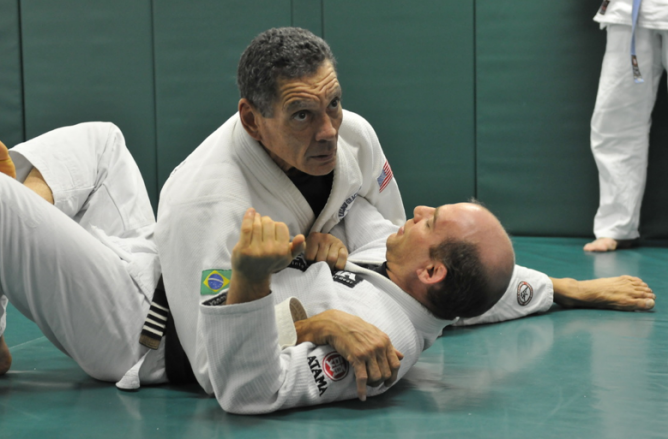
Relson Gracie
Here is what Abood had to say from his website selfdefenseinsider.com :
“Carlos Gracie seeks to bring the warring sportive and self defense camps together. That’s a good thing, and I believe that each can learn things from the other. Whenever someone who has been on the mat as long as Carlos Gracie shares their philosophical conclusions, that’s also a good thing and we should pay attention. But the question of what is the optimal way to train for self defense, concerns too important a topic, “the very ground of life and death”, as Sun Tzu would say, not to examine his arguments rigorously.
The crux of Carlos Gracie’s argument seems to be that practicing skilled versus skilled techniques (a skilled practitioner resisting against another skilled practitioner) perfects a technique against an unskilled attacker. There is some cross over between skilled and unskilled resistance, so that learning to defend against one helps you sometimes in learning to defend against the other. However, most of the time, the resistance you’d get from a skilled opponent versus an unskilled opponent to the move you’re trying to do is very different since a skilled opponent will have a very specialized way of resisting. To deal with these specialized ways of resisting a technique, you may learn dozens of counters to their counters that have little to do with anything that you’d encounter in a self defense situation. So there is the question of whether focusing completely on countering these skilled counters is the best use of your time instead of first learning to comprehensively defend yourself from unskilled attacks from all positions and continuing to train these your entire life so that your sword stays sharp.
Next, some of these skilled counters to your technique leave the person vulnerable to strikes and slams (think, inverted guard for instance) but because of the training rules or the competition rules, the simple answer (simply striking or slamming your opponent) is disallowed.
So instead of training a very simple counter (striking or slamming the person), you start to learn complex counters to inverted guard, for example. You’re spending your training time working on something you’d never ever use in a self defense situation. Lastly, by only training in the manner of skilled versus skilled opponent, you’re not training self defense situations that unskilled attackers are likely to do but skilled opponents would never do, for instance, training to defend against sudden standing attacks from behind….”

